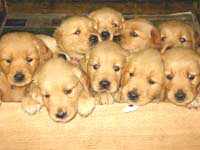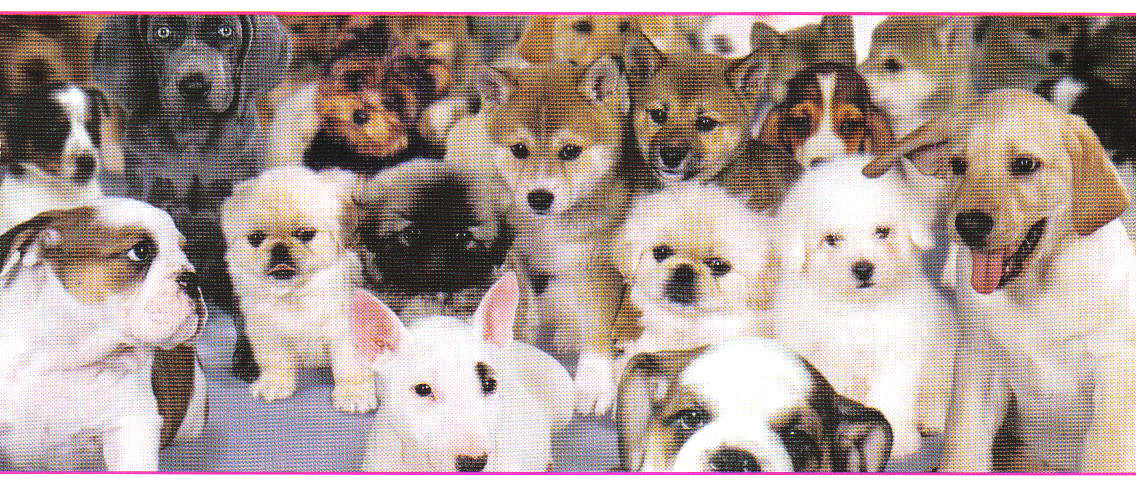WE ONLY CARRY THE FINEST TOP DOG K-9 LEATHER GEAR.At the new Canine Storewe will only sell high quality dog products. We pride ouselves in providing high quality products at an affordable price.
|
|
|
Bringing Home a Small Breed or Toy Puppy
|
|
Feeding and Care Instructions
The first few days that your puppy spends with you are crucial to his life and your relationship.
|
 |
Please follow these instructions as closely as possible to insure that your puppy stays happy and healthy. These little babies are sometimes a little more sensitive emotionally and you will need to help them to feel loved and supported during
these first few days of transition. You will need to spend a lot of time with your new family member, making sure that
she is eating and drinking a healthy amount of food and water in addition to being made comfortable in her new
home. Most puppies make the transition quite smoothly, but following these Feeding and Care Instructions should
help to make sure that your new baby transitions as easily as possible.

Play time:
It is understandable and normal to want to play with you new puppy all the time, however very young puppies need a lot of sleep time.
Limit your play time to about 15 or 20 minutes every 4 hours. letting your puppy sleep on you lap is not considered play time
and is good for bonding.
Feeding:
What to feed your puppy:
Your puppy should be fully weaned and been eating dry food for several days to several weeks depending on how old your puppy is.
Most breeders, Pet Stores, shelters and adoption centers schould give you a sampel of the food the puppy has been getting. If you
choose to feed your puppy something else, please look at the ingredients and be sure that the ingredients list begins with chicken,
lamb, beef or other animal protein. Whatever the puppy food is mostly made of is what the first ingredient on the list will be. If the ingredients start with corn or corn meal, this food is not recommended for your puppy. Also, when changing your puppy's diet, be sure to mix 1/2 of the new food with 1/2 of the food that he was eating before, for the first few days to help prevent any problems with switching his food.
When to feed your puppy:
Leave some dry food out for him all day so that if he is hungry he can eat. But, do not just assume that he is eating. Sit with him at least 4 times a day, once every 2 to 3 hours, for the first few days that he is with you. Watch him eat and encourage him to eat. These small puppies can't eat as much at one time as larger breed puppies and they have to eat more often to maintain energy.
Water:
For the first few days that your puppy is with you add a 1/2 teaspoon of honey to his water and keep fresh water available to him at all times. This will help to insure that his sugar level stays normal during the transition period.
Nutri-Cal:
This high calorie dietary supplement in a tube is a must if you are bringing home a tiny dog.
Nutri-Cal will help keep a tiny dog or puppy from going into hypoglycemia (low blood sugar). It is also a great source
of extra vitamins for any size puppy. It will help to insure that your puppy is getting some good nutrition while he
adjusts to his new home. A small amount should be given every 6 to 8 hours and right before bedtime for the first 7
days, or until your puppy is settled in and eating well. You just squeeze a pea sized amount onto the tip of your
finger and let your puppy lick it off or rub it into his gums. After 7 days, continue to give your puppy a dose right
before bedtime. You can get Nutri-Cal at your vet's office or at most pet shops.
Safe Area:
You can choose to create a safe place for your small puppy by using either a baby or puppy playpen, crate, kennel, large box
or baby gate to partition a small area. It should be large enough to hold a little bed, small dish for food and water, with enough room left to relieve themselves if necessary. Puppies can get into a lot of trouble if they are left unsupervised, so it is necessary to put them in a playpen or other small confined area to keep them safe whenever you are not sitting right with them. This is just a
temporary place until the puppy is older and doesn't need quite so much sleep, is less mischievous and housebroken.
Puppy proof your house:
Just as you would prepare for a child or a baby, you need to prepare your house for your new puppy. You need to move all house
plants, electrical cords, household cleaning supplies, or anything else dangerous near floor level that a small puppy could possibly
chew on or be harmed by. A lot of house plants are poisonous, so be sure that your puppy can't get to them.
Chew toys:
It is a good idea to have a few chew toys to help keep your puppy amused and away from things he
shouldn't chew on. Young puppies seem to especially like soft stuffed toys to chew on and sleep with. They also like
some harder chew toys and teething bones. Be sure to only purchase toys that are safe for puppies!
Hygiene:
Please be sure to wash your hands each time before handling your puppy. This will prevent spreading
germs to your new puppy and you never know what you may come in contact with while you are out and about that
could affect your puppy.
Bathing:
Try not to bathe your puppy for the first day or two. A bath in a new home can be stressful for a small
puppy. Don't bathe your puppy more than once a week as a dog's skin has a different ph than a human and his
skin will dry out if he is bathed too much. Also, use only shampoo that is made just for dogs.

Problems:
If your puppy seems to be having a little difficulty adjusting to his new home and he doesn't seem to be
eating well or drinking enough fluids, you will need to encourage him to eat and drink. NutriCal needs to be
administered as soon as you think your puppy appears weak or lethargic. You may want to go ahead and have
some Gerber Chicken Sticks on hand to entice him to eat. First, you can try putting some warm water on his dry
food and see if that will get his interest. Any Gerber Baby 1st foods that are meats would be OK to give him, as well.
The main thing is to be sure that he doesn't get too weak. Do not let him go more than a few hours without
something to eat or drink. In my article regarding hypoglycemia, there is a lot of information about how to tell
if your puppy is becoming hypoglycemic and what to do for him. If you are ever in doubt, take your puppy to the vet
IMMEDIATELY.
|
|
|